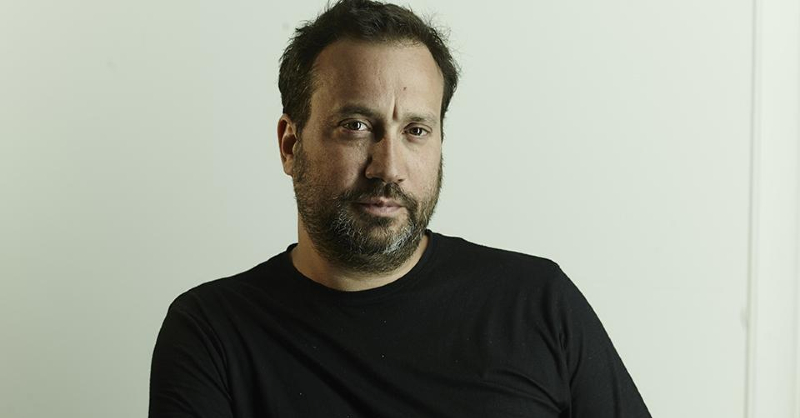On the fourteenth year of the Hrant Dink Memorial Lecture on Freedom of Expression and Human Rights presented by Boğaziçi University History, Sociology and Political Sciences and International Relations departments, architect and human rights activist Eyal Weizman gave a lecture titled ‘The Long Duration of a Split Second’.
At his online talk on 28th of January 2021 Weizman pointed out that obscuring and manipulation of fact and the attack on truth means that state violence is always directed at people and things and the denial of evidence means that the violence is continuing. He pointed out that at these times counter forensic comes into the picture and it is the inversion of the forensic case and allows us to question the institutions that should be in charge of our safety. He gave counter forensic examples and he defined counter forensic as mapping from below, following the micro details of the incidents, following the legal and cultural areas and trying to understand the history of a long duration of a split second.
Eyal Weizman is Professor of Spatial and Visual Cultures and founding director of the Centre for Research Architecture at Goldsmiths, University of London. In 2010, he founded the research agency Forensic Architecture. Eyal Weizman’s uses various techniques and disciplines to investigate cases of political violence and violations of human rights around the world, particularly Palestine, by the analysis of architectural and media-based evidence. The organization recently examines the assassination of Tahir Elçi from Turkey.
In his speech, Weizman also touched on the effects Hrant Dink had on himself.
My friend, Hrag Vartanian, a New York based editor, sent me an interview Hrant Dink has given to him, a few months before his assassination in which Dink says: “…one thing I know is that things will change, for better or worse. How do I know? I don’t see the change; I’m living the change.”
He ended up dying the change, or for the change, and if change will come, it will be largely thanks to your ongoing efforts here and elsewhere to use the commemoration of his life to promote values of human rights and democracy. From a life that is so rich, and from a death that is so brutal and tragic, there are many lessons to learn. These lessons – formative for Turkish Civil Society – also resonate well beyond these borders.
Thinking about Dink, helped me -- a Jewish, Israeli-born scholar and human rights activist -- reflect about my own history and the place I come from. It takes the courage and dignity of Hrant Dink to insist we look back at the most unspeakable and horrific violence of the Armenian Genocide and acknowledge it as the foundation violence of the state. From my perspective, I’m thinking not only at the Holocaust, but of the violence that lies at the foundation of Israel, the Palestinian catastrophe or Nakba of 1948 -- the expulsion, massacres and land theft that continue to the present day. However, there are laws in Israel that forbid the uttering the word “Nakba.” And so, when one is unable to utter the word, every murder of every Palestinian, and the ensuant denials or justification, inevitably becomes the continuation of the Nakba, a catastrophe of destruction that last to this very day. We, in Israel/Palestine must also consider the truth of the Nakba, as horrible as it is, as the necessary ground for claim for democratisation and for the “right of return”. Learning about the life of Dink, made me reflect about the interplay he had demonstrated between a forceful insistence on the truth, and the multiple subtle ways he practiced pursuing it. It made me think of how to deal with laws, legislated also in Israel, that protect the “honour of the state” (states that need laws to protect their honour have none).
Learning about Hrant Dink made me think about what it means when a state refers to political murderers as “rotten apples” or “bad weeds” -- as Israel did to every political murderer from that of Rabin to that of Abdel Fattah al-Sharif who was shot when lying wounded in Hebron. A state absolving itself of responsibility for murders nourished from the cultural violence and structural racism it promotes further terror.
Other lessens I drew reading about Hrant Dink were to do with how careful we must all be to resist letting authoritarian states aggravate tensions between marginalised groups. Palestinians and Mizrahi Jews speak the same language, which could be the basis for a shared existence in a democratic state. Equally we must resist falling into the trap of manufactured tensions between Armenians, Kurds and Jews.
Learning about Dink make me reflect upon how limited are the remedies that the law could offer; about what happens when we cannot rely on the law to provide justice, or worst, when the legal process becomes political repression by other means. My friend the legal scholar Basak Ertür wrote of the assassination of Dink: “Law forgets…Then it forgets that it forgot…When it is reminded … it postpones the remembering so that the forgetting will be deeper and darker.” Learning about the assassination of Hrant Dink made me think of the price one must risk paying for speaking the truth. It made me think of Tahir Elçi, and our investigation of his killing, of which I am unable to speak today, due to the ongoing legal process.
At the end of the event, Rakel Dink thanked the academics and students at Boğaziçi University for organizing the 14th memorial conference at this extraordinary time, where they struggle for democracy and autonomy at the university.

